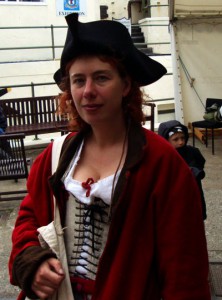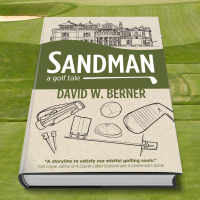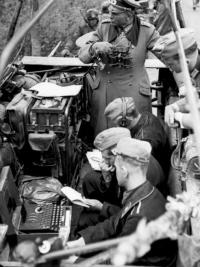
 I used to write most beautifully, or so I was told.
Great long lyrical passages of heartfelt emotion, wrapped up in a vocabulary to make my school teachers proud. I was happy with it, and writing the way I saw and felt the world helped me to make
sense of it.
I used to write most beautifully, or so I was told.
Great long lyrical passages of heartfelt emotion, wrapped up in a vocabulary to make my school teachers proud. I was happy with it, and writing the way I saw and felt the world helped me to make
sense of it.
Then, for reasons personal and financial, I needed to find a way of making money that did not involve rising at dawn to stand in front of a class of prisoners, all day and every day. I saw that I could turn my talent - such as it was - into a way of making a living that would subject me to less abuse.
Writing features for magazines changed everything. It changed my financial position (rather positively) and it changed how I write, too. Mostly, I feel, it changed my writing for the better - but not completely. It is a sometimes uneasy shift of purpose.
Before writing for a magazine, it is important to study their house style. I had to be sensitive to how the articles were written as well as what they were written about. I had not considered “style” before. I had assumed that I wrote in “my style” and it was fixed, and unique to me. Analysing magazines and their articles forced me to be flexible and adapt. This broadened my abilities - I still wrote with my “voice” but it was tempered to their overall feel. I began to see that some articles were informative, and others emotional, and that it was my job to deliver exactly the emotion that was asked for.
I learned to be concise. This was hard. I wrote widely at first, and then began to specialise in an area that was niche at the time - it’s mainstream now - cycling, and beginners’ cycling, and specifically, women beginners. It became my passion and I struggled to condense all my words into tight, narrow boundaries. There was always more to say! I learned to ensure that each word and each sentence worked. It had to perform a job, and sometimes more than one. If it did not deliver information or emotion - or both - it was deleted, no matter how pretty the phrasing.
And I learned about reader expectation. In fact, I learned to respect the reader. My earlier writings were for me. It did not matter that they were flowery or pretentious. Who cares? But I realised that I liked the reader, and I wanted to please them, and deliver what they wanted - and also, deliver what they needed, which is an arrogant thing to assume, of course.
I drifted, by sideways movements, into writing erotic romances, and then sweet romances. I carried these lessons from journalism across: make the words work. Make the sentences deliver. Waste no time. And respect the reader - give them what they expect. They have paid money for my book. I will not abuse their confidence in me.
This is why I am sceptical of those who try to write in a popular genre just to make money - because if they do not love the reader, they will not please them. Conversely, I am equally sceptical of those who write for themselves alone but seek publication, for they will be disappointed if they have no idea of their audience.
Trying other styles and other genres - both reading and writing - won’t destroy a writer’s uniqueness. It will expand their range. It will concentrate their own purpose. It will confirm their strengths and improve on their weaknesses.
Journalism taught me that I can use my talents to live on. That I can adapt and grow as a writer. That I can aim to a market without compromising my passions. And that some of my writing is better left on my hard drive…
--
Writer: romantic comedy as Isabella Brooke. General cycling wittering as myself.
If you are interested in books about writing, visit Compass Books
Categories:
0 comments on this article







